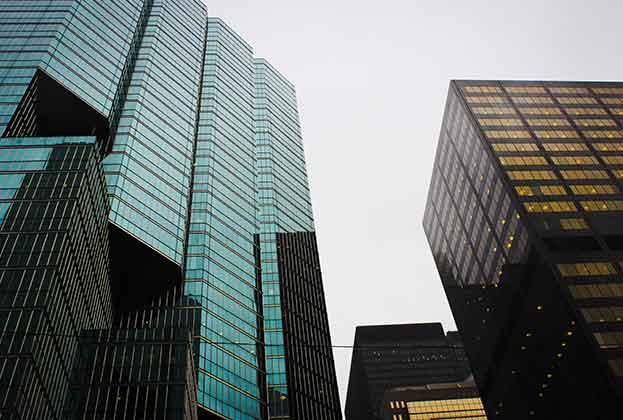Core investors remain split over the impact homeworking will have on office demand
Despite relatively modest first-half YoY falls in office investment volumes, one of the more noticeable trends has been a fall in cross border investment during H1 2020, largely due to a fall from Asian and US investment during travel lockdowns. We see a renewed appetite for European real estate by Korean investors, many of which are now looking to co-invest with European-based asset managers. US capital remained less active during Q2 2020 as French and German retail funds increased cross border activity, however, we expect a return of US investors during H2 2020 as more pricing clarity emerges and there is a return to relative value.
The majority of European office yields ultimately held firm during H1 2020. Only Warsaw (+25 bps), Prague (+20 bps), Manchester (+25 bps), Helsinki (+5 bps) and Amsterdam (+5 bps) observed any outward movement, while Oslo office compressed by 5 bps (see below).
The lull in investment activity is likely to continue through the summer period as landlords take stock, with many waiting until September to launch portfolios which we expect to be reflected in recovering investment transaction volumes towards Q4 2020 and Q1 2021.
There remains a split in sentiment towards homeworking among core investors- some remain cautious over homeworking and are paying close attention to the speed of return to work, although many are seeing this as a buying opportunity at a discount, as the weight of capital is less aggressive than during pre-Covid. The perceived lack of availability of debt has reduced the buyer intensity, however most vendors are in no rush to trade up and redeploy capital in an already undersupplied market.
Since the Covid-19 outbreak, we have observed an average c.5% price differential on prime offices, with fewer transactions occurring on assets in non-core markets. However, long-leased income to stable covenants has avoided any pricing discounts.
Multi asset managers will continue to see European offices as an attractive income generator despite the muted prospects of rental growth over the next 12 months. The yield spread between Paris CBD offices and French 10-year government bonds has reached 310 bps, the highest level on record and almost double the historic average of 163 bps. Similarly, the Big 7 German office-sovereign bond yield spread currently stands at 340 bps, maintaining the attraction of CBD offices against alternative assets classes.
Read the articles within European Offices Outlook below.


